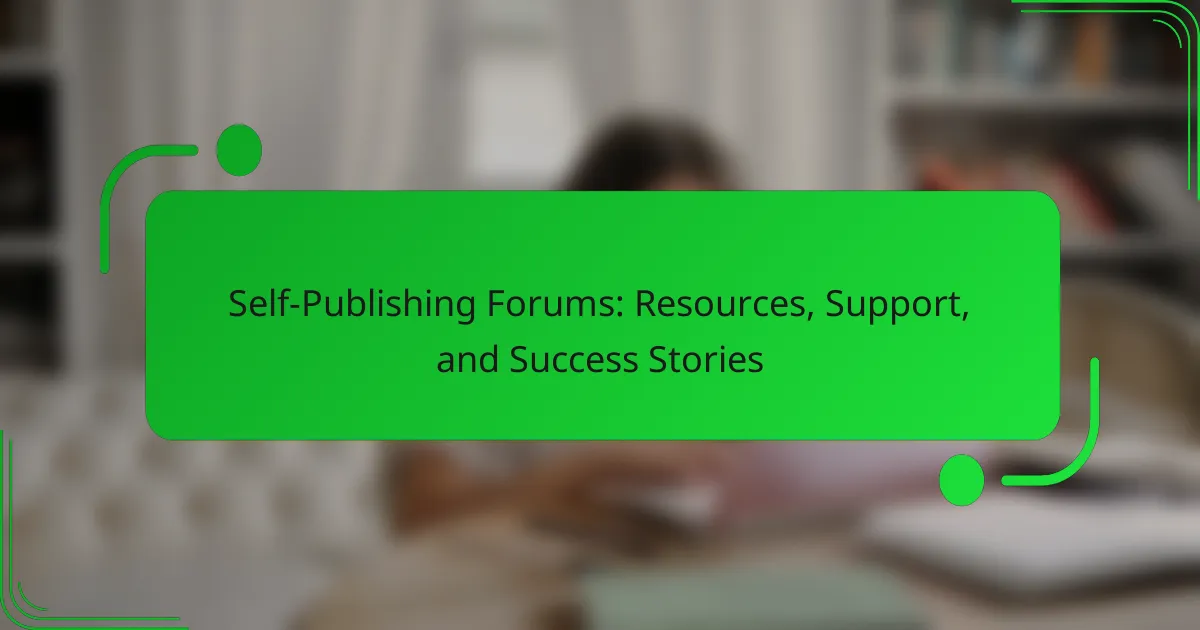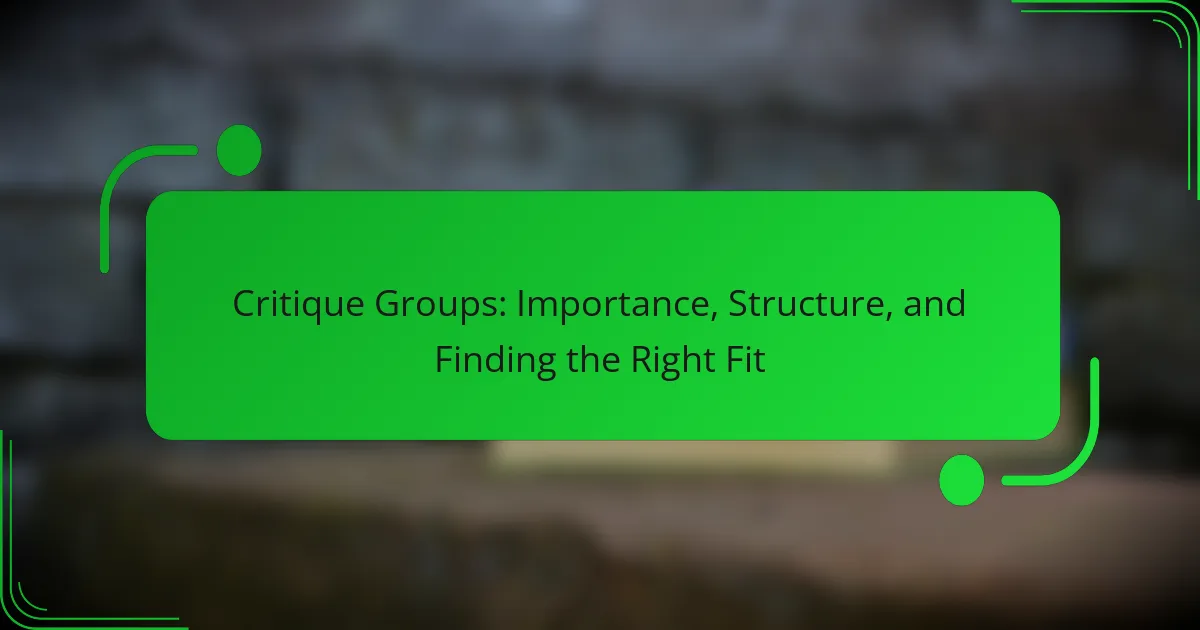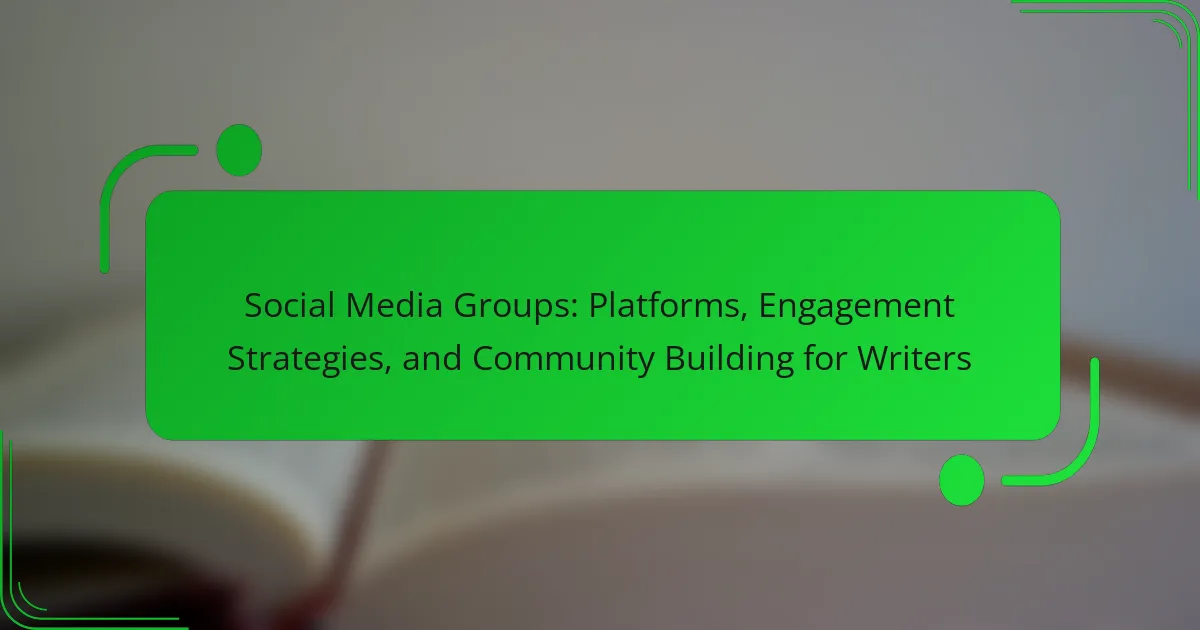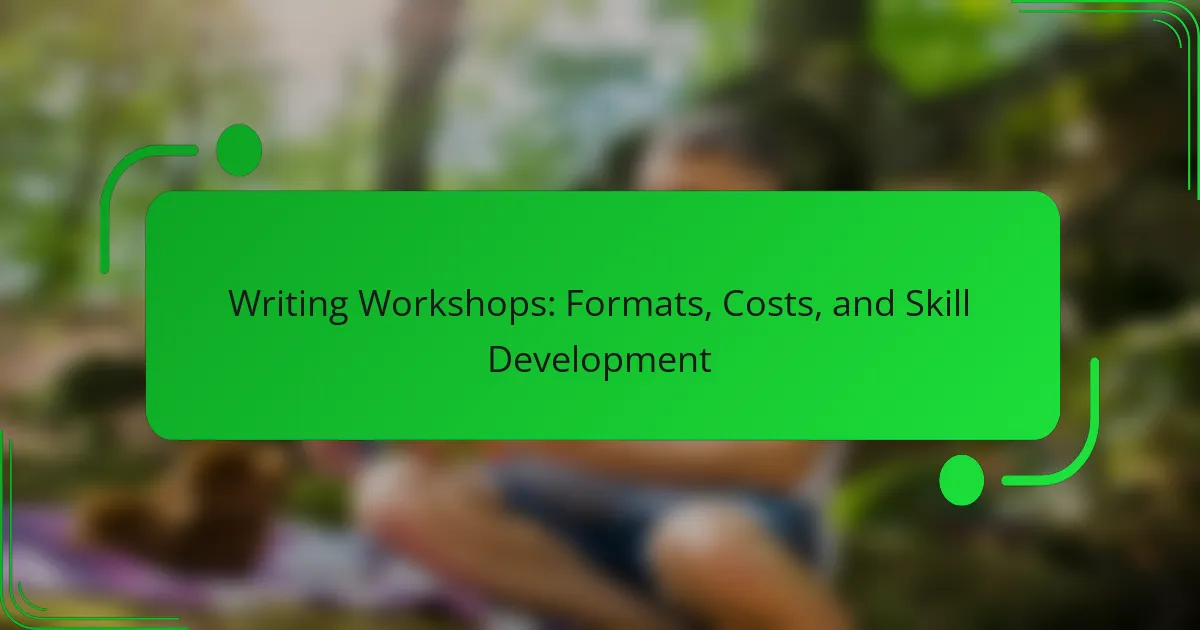Literary contests offer indie authors a pathway to recognition and career advancement. This article covers essential entry guidelines, potential prizes, and effective strategies for maximizing your chances of success. Learn how to avoid common pitfalls and select contests that align with your genre and goals. Discover unique opportunities that can elevate your writing journey.
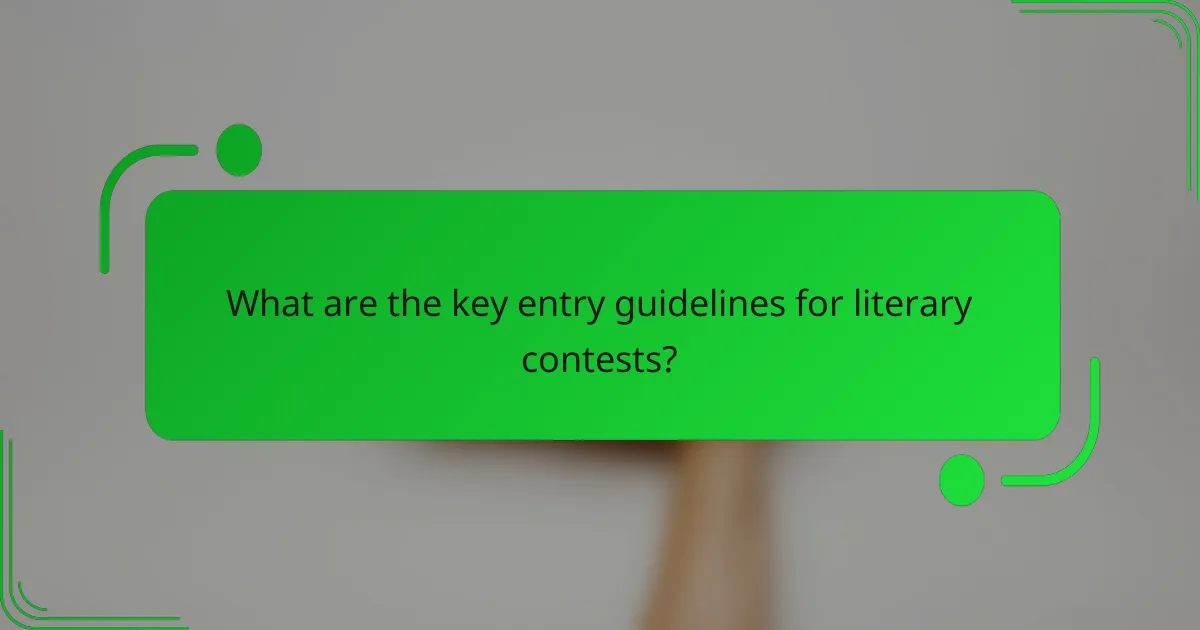
What are the key entry guidelines for literary contests?
To enter literary contests, follow specific guidelines provided by each contest. Common requirements include submission format, word count limits, and eligibility criteria.
1. Review submission guidelines carefully for specific formatting requirements.
2. Adhere to word count limits, typically ranging from 1,000 to 5,000 words.
3. Ensure eligibility based on residency, age, or genre restrictions.
4. Include a cover letter if required, detailing your background and work.
5. Submit entries by the specified deadline, often in digital format.
6. Check for any entry fees and payment methods before submitting.
Following these guidelines enhances your chances of success in literary contests.
How to prepare your manuscript for submission?
To prepare your manuscript for submission, follow these essential steps. First, ensure adherence to the specific entry guidelines of the literary contest, including formatting and word count. Next, create a compelling query letter that highlights your unique attributes as an author. Then, proofread your manuscript meticulously to eliminate any errors. Finally, submit your work before the deadline, ensuring all required materials are included.
What are common eligibility requirements?
Common eligibility requirements for literary contests include age restrictions, genre specifications, and submission guidelines. Many contests require participants to be at least 18 years old. Some contests may only accept submissions in specific genres, such as fiction or poetry. Additionally, authors may need to adhere to word count limits and formatting standards. Checking individual contest rules is essential for compliance.
Which formats are accepted in literary contests?
Most literary contests accept submissions in formats such as short stories, poetry, and essays. Additional formats may include novel excerpts and screenplays. Each contest has specific guidelines detailing acceptable formats, word counts, and submission methods. Always check the rules for the particular contest before entering.
How do deadlines impact your submission strategy?
Deadlines significantly shape your submission strategy by dictating timing and prioritization. Authors must plan their writing and editing processes to meet contest deadlines effectively. This planning can enhance the quality of submissions and increase chances of winning. Additionally, understanding the timeline allows for better management of multiple contests, ensuring that entries are polished and submitted on time. Meeting deadlines can also create a sense of urgency, motivating authors to complete their projects.
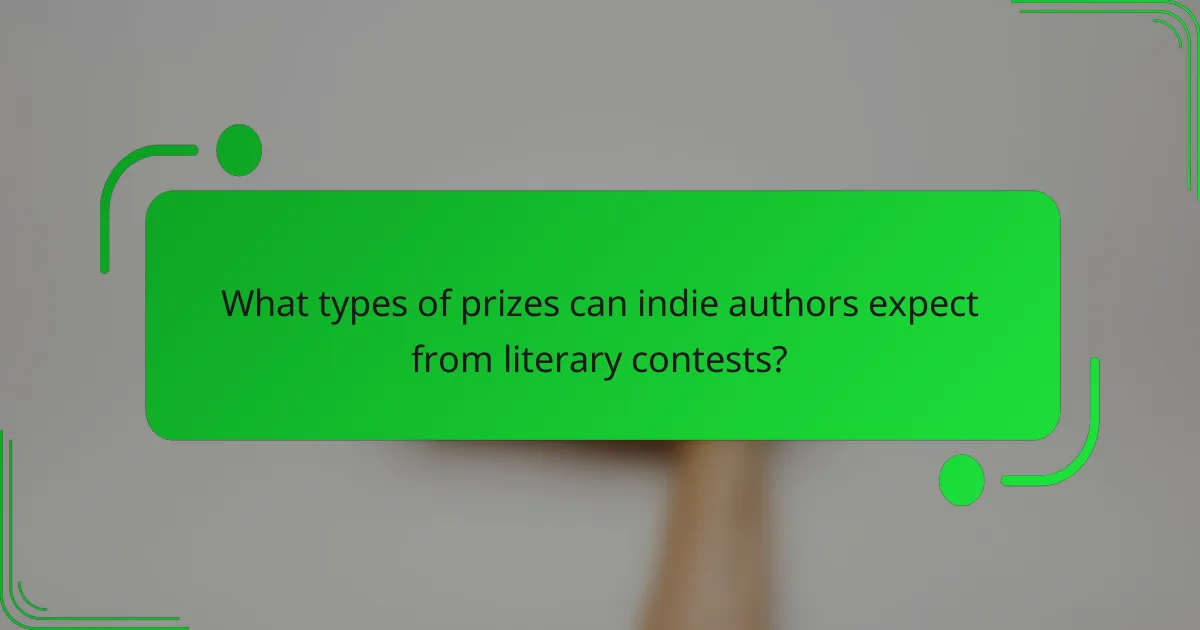
What types of prizes can indie authors expect from literary contests?
Indie authors can expect various prizes from literary contests, including cash awards, publication opportunities, and mentorship programs. Many contests also offer exposure through media features and networking opportunities. Specific prizes may vary by contest, but the potential for increased visibility and career advancement is a common benefit.
How do monetary awards vary by contest?
Monetary awards in literary contests vary significantly based on the contest’s prestige and funding sources. High-profile contests often offer substantial prizes, sometimes exceeding $10,000, while smaller contests may provide awards ranging from $100 to $1,000. Additionally, some contests include publication opportunities or mentorship as part of their prize structure, enhancing their overall value.
What non-monetary prizes are typically offered?
Literary contests often offer non-monetary prizes such as publication opportunities, mentorship, and recognition. These prizes can enhance an author’s visibility and credibility in the literary community. Other typical rewards include literary agent introductions, feedback from judges, and participation in workshops or retreats. Each prize contributes to an author’s growth and network expansion.
Which contests are known for prestigious recognition?
Several literary contests are renowned for their prestigious recognition, including the Pulitzer Prize, Man Booker Prize, National Book Award, and the Hugo Award. These contests celebrate outstanding literary achievements and provide significant visibility for indie authors. Winning or being shortlisted can greatly enhance an author’s career and readership.
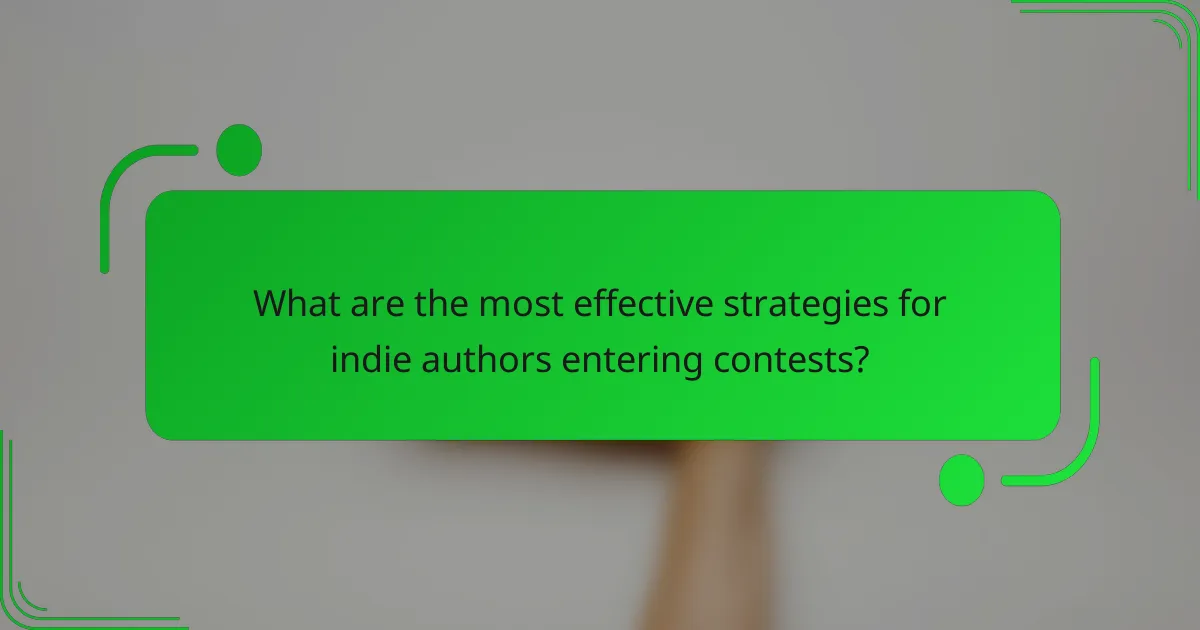
What are the most effective strategies for indie authors entering contests?
Indie authors can enhance their chances in contests by following key strategies. First, thoroughly research contests to identify those that align with your genre and goals. Next, carefully read entry guidelines to avoid disqualification. Tailor your submissions to meet specific contest themes or requirements. Seek feedback from peers or writing groups before submitting to refine your work. Lastly, consider entering multiple contests to increase exposure and opportunities for recognition.
How can networking enhance your chances of success?
Networking significantly boosts your chances of success in literary contests. It connects you with industry professionals, expands your visibility, and provides valuable feedback on your work. Engaging with fellow authors can lead to collaborative opportunities and insights into contest trends. Building relationships with judges and literary agents can enhance your credibility and increase your chances of winning.
What role does feedback play in improving submissions?
Feedback is essential for enhancing submissions in literary contests. It provides authors with insights into their strengths and areas for improvement. Constructive criticism can guide revisions, helping writers refine their voice and style. Engaging with feedback fosters growth, making submissions more competitive. Ultimately, it increases the likelihood of success in contests by aligning entries with judges’ expectations.
How to choose the right contests for your work?
To choose the right literary contests for your work, assess eligibility, entry guidelines, and prizes. Focus on contests that align with your genre and writing style. Research the contest’s reputation and previous winners to gauge its credibility. Consider the feedback opportunities and exposure the contest offers to enhance your writing career.
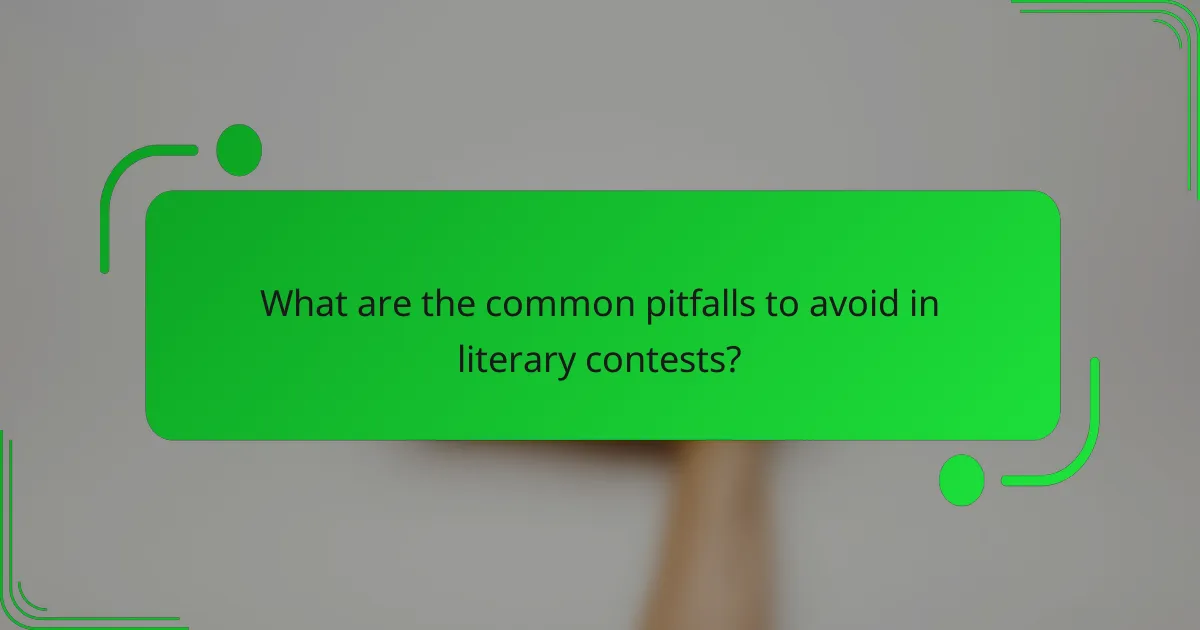
What are the common pitfalls to avoid in literary contests?
Common pitfalls to avoid in literary contests include ignoring entry guidelines, submitting unedited work, and missing deadlines. Authors should also avoid overcomplicating their submissions and neglecting to research the contest’s theme or requirements. Additionally, failing to proofread can diminish the quality of an entry, reducing chances of success.
How can poor formatting affect your submission?
Poor formatting can significantly hinder your submission’s chances in literary contests. It can lead to misunderstandings of your work, distract judges, and reflect a lack of professionalism. Consistent formatting enhances readability, making it easier for judges to focus on your content rather than its presentation. Submissions that fail to adhere to guidelines may be disqualified or overlooked, impacting your opportunity for recognition and prizes.
What mistakes do authors frequently make in their entries?
Authors frequently make several mistakes in their entries, which can hinder their chances of success. Common errors include not adhering to submission guidelines, submitting work that is not polished or edited, and failing to provide a compelling synopsis. Additionally, overlooking the importance of formatting can detract from the overall presentation. Many authors also neglect to research the contest’s specific themes or requirements, leading to misalignment with the judges’ expectations. Lastly, not paying attention to deadlines can result in missed opportunities.
How does failing to follow guidelines impact your chances?
Failing to follow guidelines significantly reduces your chances of success in literary contests. Judges often disqualify entries that do not adhere to specified requirements, leading to missed opportunities for prizes and recognition. Consistent adherence to guidelines demonstrates professionalism and respect for the contest, enhancing your credibility as an indie author. Additionally, understanding these guidelines can help tailor your submission to align with the contest’s theme and expectations, which is crucial for standing out among competitors.
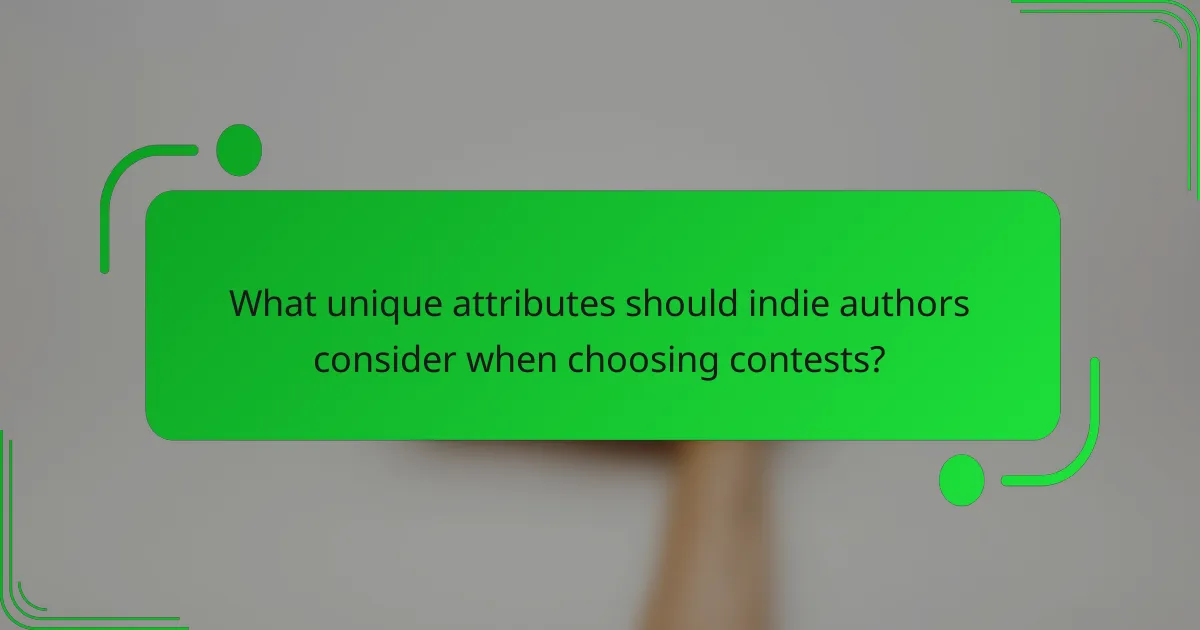
What unique attributes should indie authors consider when choosing contests?
Indie authors should consider unique attributes such as contest reputation, judge expertise, and genre specificity when choosing contests. A contest’s reputation can influence visibility and credibility. Judge expertise ensures constructive feedback and recognition. Genre specificity helps target the right audience and enhances relevance.
How do genre-specific contests differ from general ones?
Genre-specific contests focus on particular styles or themes, while general contests accept a broader range of submissions. Genre-specific contests often have tailored criteria that reflect the nuances of the genre, such as specific character development or thematic elements. In contrast, general contests prioritize overall writing quality and originality across various genres. Additionally, prizes in genre-specific contests may cater to niche audiences, enhancing visibility for authors within those genres. This distinction helps authors target their submissions effectively, increasing their chances of success.
Which contests focus on underrepresented voices?
Several literary contests focus on underrepresented voices, providing crucial platforms for diverse authors. Notable examples include the Cave Canem Poetry Prize, which supports Black poets, and the Lambda Literary Awards, celebrating LGBTQ+ writers. Other contests like the VONA/Voices Writing Workshop prioritize marginalized voices, fostering inclusivity in literature.
What are the benefits of local versus international contests?
Local contests often provide more accessible networking opportunities and targeted feedback, while international contests offer broader exposure and prestige. Local contests can focus on regional themes, enhancing relevance for participants. International contests typically attract a diverse range of submissions, increasing competition and visibility. Ultimately, the choice depends on an author’s goals, whether seeking community engagement or global recognition.
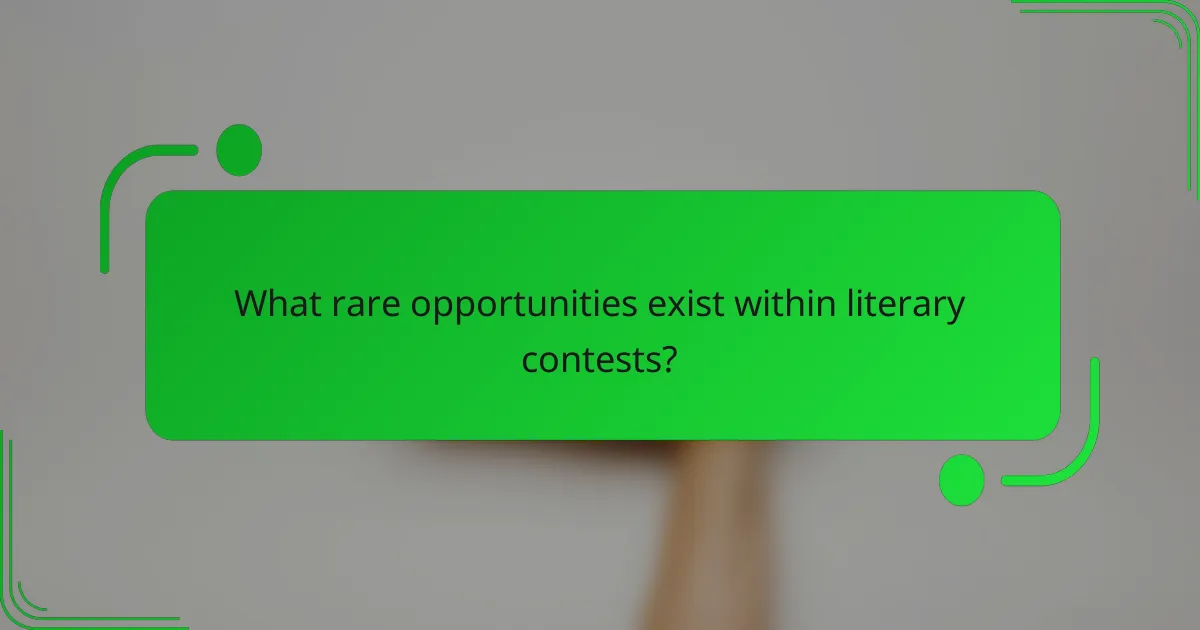
What rare opportunities exist within literary contests?
Rare opportunities within literary contests include unique prizes, exposure to agents, and networking with established authors. Some contests offer publication deals, mentorship programs, or exclusive workshops that are not commonly found elsewhere. These elements can significantly enhance an indie author’s career trajectory.
How can contests lead to publishing deals?
Contests can lead to publishing deals by showcasing talent to industry professionals. Winning or placing in a literary contest often attracts attention from agents and publishers. Many contests offer direct connections to publishing opportunities as part of their prizes. Additionally, success in contests builds an author’s credibility, increasing their appeal to potential publishers.
What unique mentorship programs are available through contests?
Unique mentorship programs are often integrated into literary contests, offering guidance from established authors. These programs typically include one-on-one feedback sessions, workshops, and networking opportunities. Notable contests like the Writer’s Digest Annual Writing Competition and the Amazon Breakthrough Novel Award provide mentorship as part of their prize packages. Such initiatives enhance the development of indie authors by connecting them with industry professionals.
How do some contests offer exclusive access to agents or publishers?
Some contests offer exclusive access to agents or publishers as part of their prizes to enhance appeal. These opportunities can lead to valuable networking and professional growth for indie authors. Exclusive access often includes pitch sessions, feedback from industry professionals, or even direct representation offers. This unique attribute distinguishes certain contests, making them more attractive to participants seeking career advancement. Such contests typically have specific entry guidelines that emphasize the importance of quality submissions.
What best practices can maximize your chances of winning?
To maximize your chances of winning literary contests, focus on understanding the specific entry guidelines. Tailor your submission to align with the contest theme and requirements. Ensure your work is polished and adheres to formatting standards. Engage with past winners’ works to identify successful elements. Finally, consider feedback from peers or mentors before submission, as this can enhance your work’s quality.
